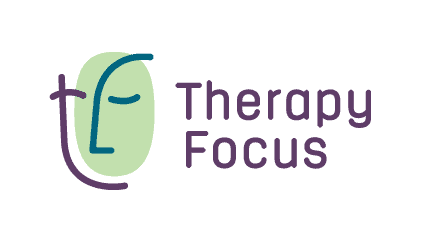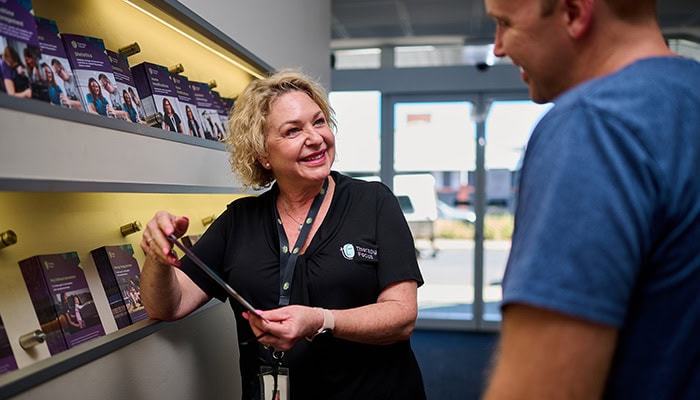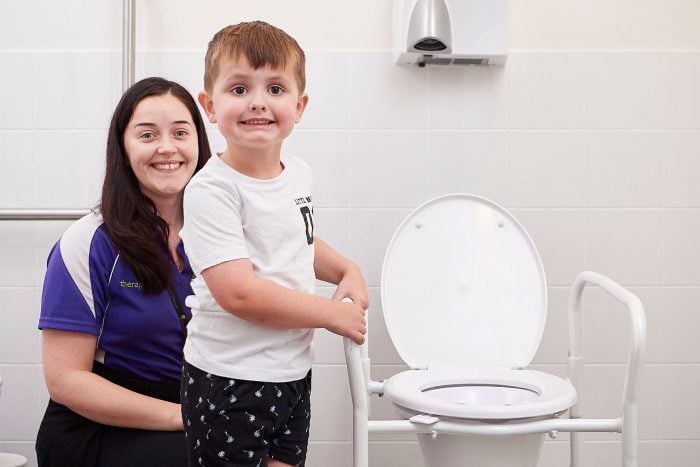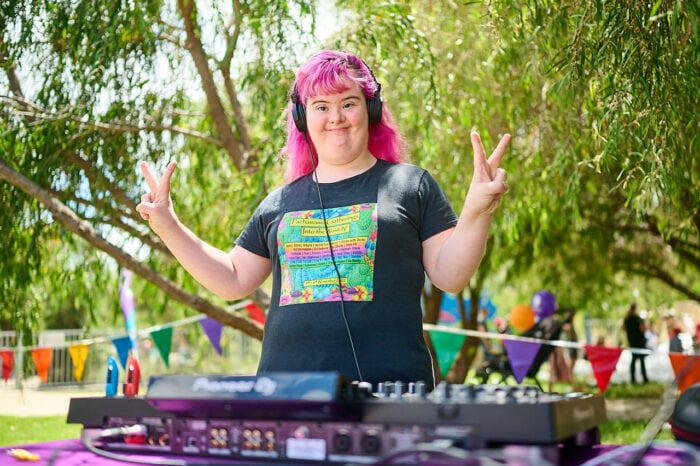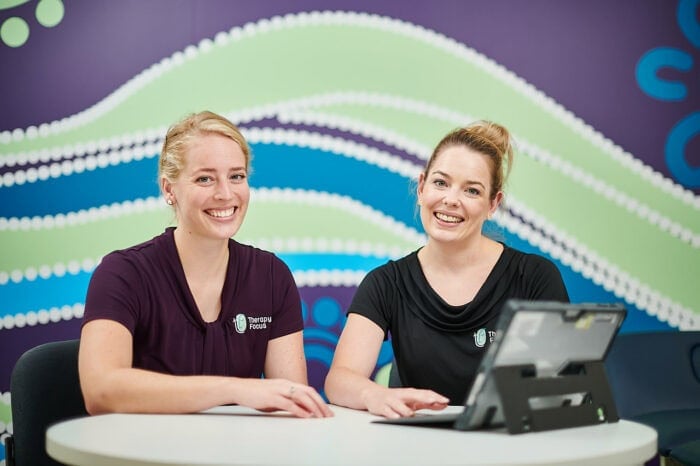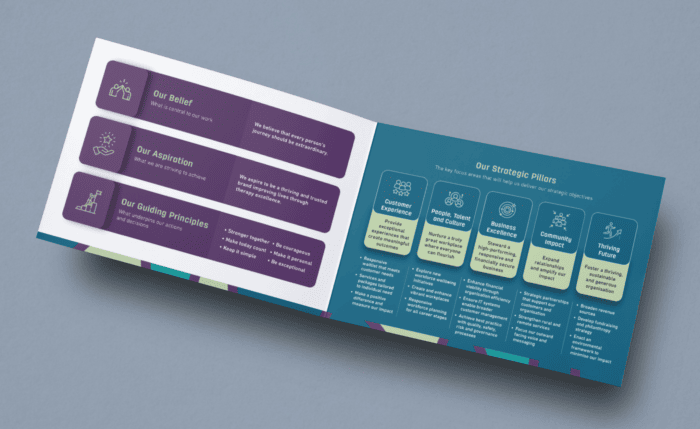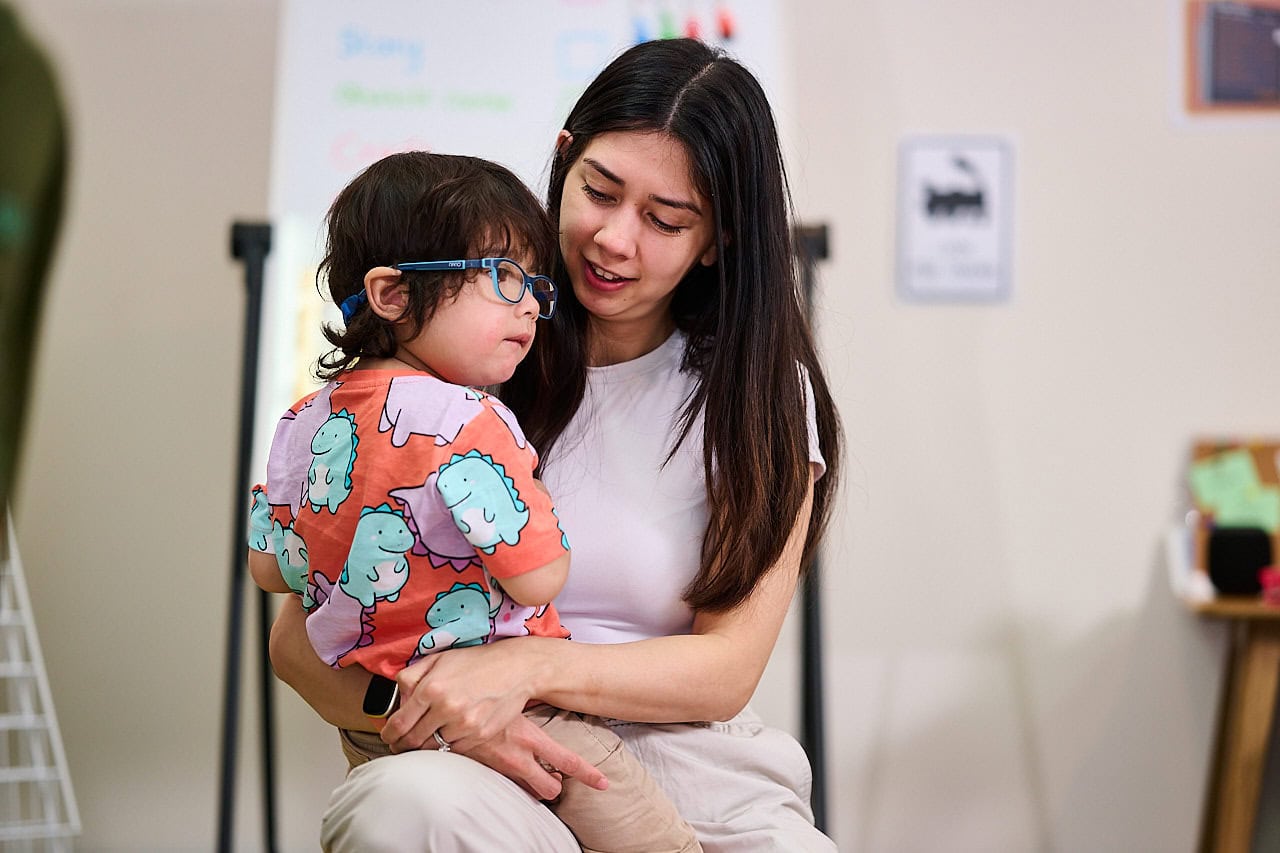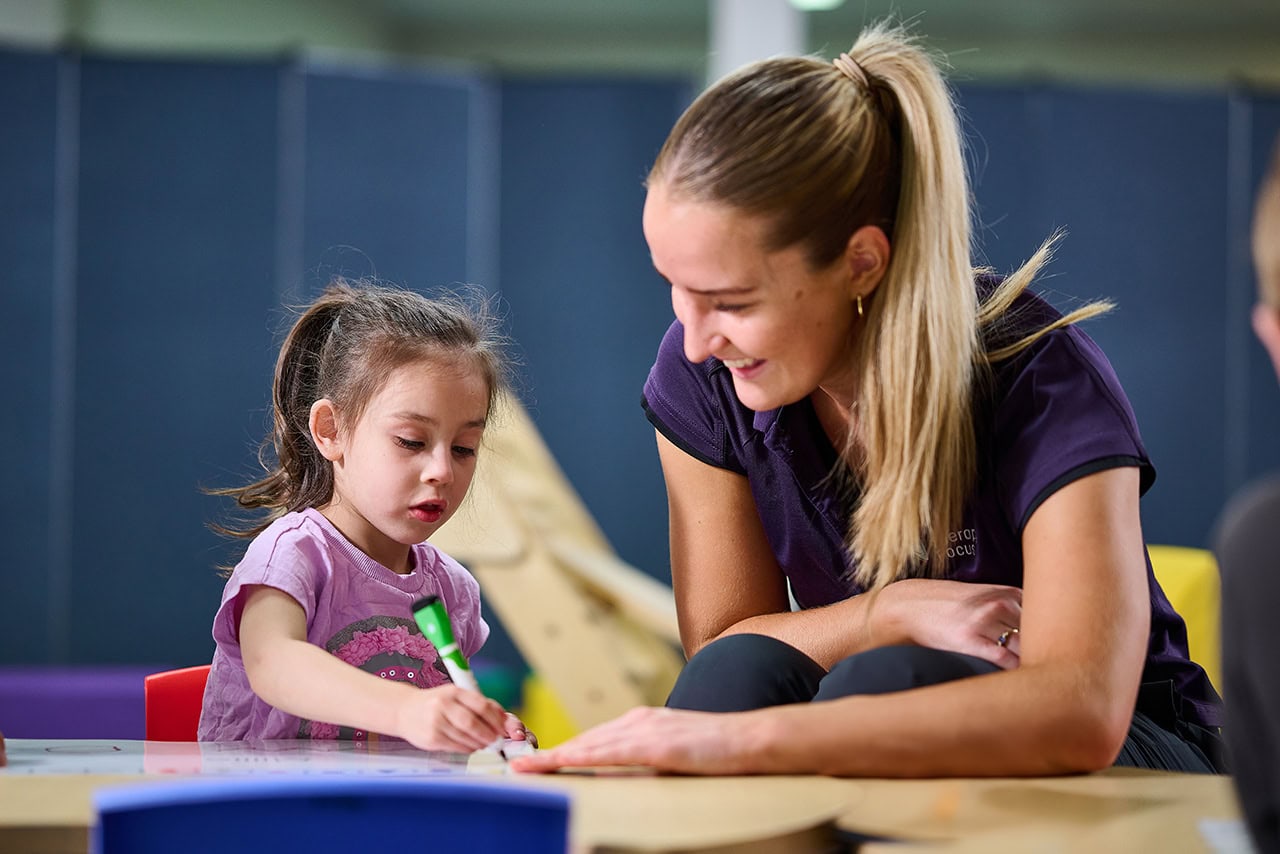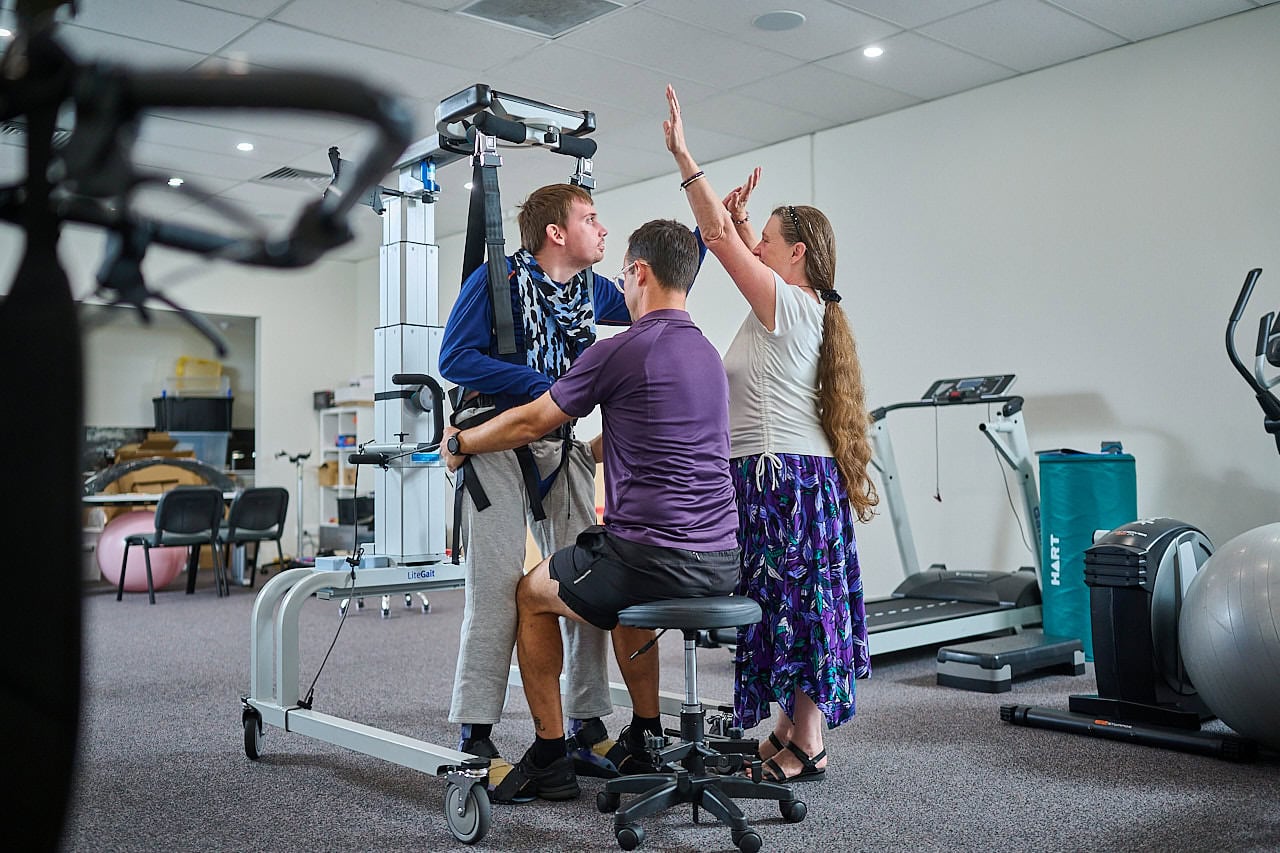What is Blended Tube Feeding?
There is growing interest in blended tube feeding for those who are enterally fed (fed through a tube). But what is blended tube feeding and is it right for you?
Well, let’s start with explaining tube feeding or enteral feeding. Some people are unable to eat or drink safely and therefore require a tube to support their nutrition and/or fluid requirements. Others may be able to eat and drink but are not meeting their nutritional needs, so a tube is required to help boost their nutrition and/or hydration.
Blended tube feeding is giving blended or liquidised foods via the tube. A small amount of blended food can be added to a commercial formula, or you might use the blended food only – so long as it meets 100% of a person’s nutritional needs.
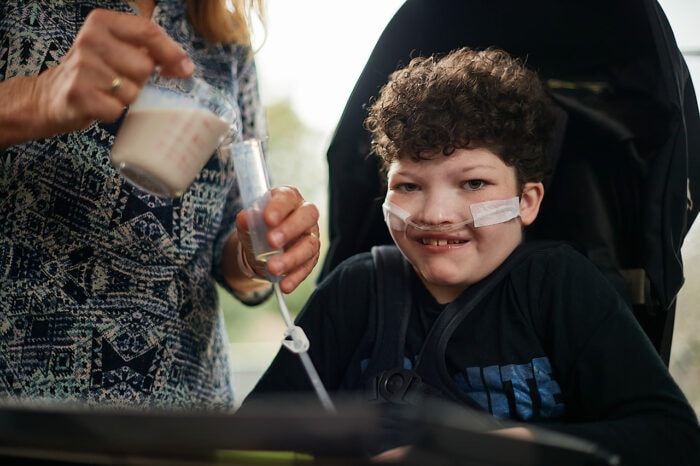
Blended tube feeding has become more popular in recent years, with families and health professionals reporting benefits and further research supporting their claims. It has helped normalise the experiences of parents trying to include tube-fed children in family mealtimes, and de-medicalising what often felt like a very clinical process. A tube-fed child or adult can have a say in what they are having for meals, giving them a sense of control.
There are reports of improved quality of life and general well-being from those who have switched to blended tube feeding. Research has shown that for some people there can be an improvement in gastrointestinal symptoms such as reflux, vomiting, abdominal pain and discomfort. There is also growing evidence to suggest that blended tube feeding can have a positive effect on the gut microbiome, but more research is needed in this area.
While there are plenty of benefits associated with blended tube feeding, it is not necessarily the better option when compared to commercial tube feeds. The use of sterile and nutritionally complete commercial tube feeds remains the standard for tube feeding. Many people who use commercial tube feeds tolerate them just fine and they usually better suit their needs.
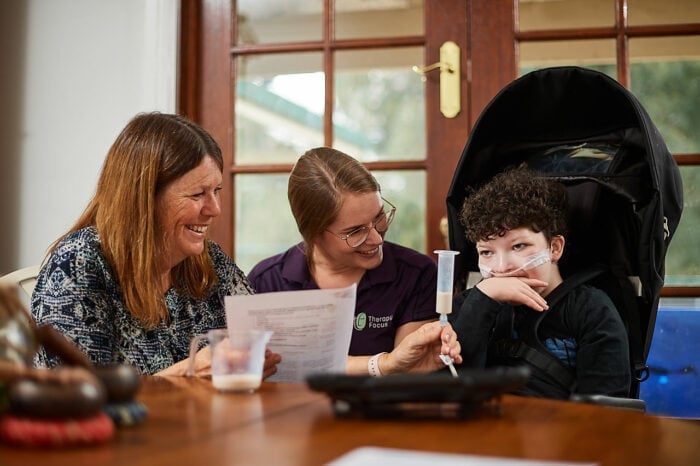
Important considerations for blended tube feeding
If you are thinking about blended tube feeding, there are some things you may need to consider:
- Blended tube feeding requires more preparation time and a suitable blender to achieve the correct consistency
- Blended feeds should not be left out of the refrigerator for more than 2 hours, making it difficult for those who require continuous feeding
- Ensuring the right consistency of the blend is important to reduce the risk of tube blockages and prevent the blend from being too thin and diluting the nutrients
- If principles of food hygiene and preparation are followed there should be no increased food safety risk compared to non-blended food, however, correct procedures of storage, reheating, freezing and defrosting blends should be closely adhered to
At Therapy Focus, our experienced Dietitians have experience with blended tube feeding and can support you to achieve the correct consistency, meet nutritional needs, and monitor nutritional status.
There are some occasions where blended tube feeding is not advisable. If a person requires jejunal feeding (feeding directly into the small bowel) or is medically unstable you should always consult your doctor and dietitian to better understand requirements and determine if it is a suitable option.
For more information about blended tube feeding, speak with your dietitian, or get in touch with the team at Therapy Focus. You can also access detailed resources on the Australasian Society of Parenteral and Enteral Nutrition website.
Food is such a large part of social occasions, culture and everyday life. It is important that people who are tube-fed also have their piece of the pie!
Need support for tube feeding?
Our experienced dietitians and speech pathologists can help make mealtimes safe, nutritious and enjoyable for children and adults who are tube-fed.
